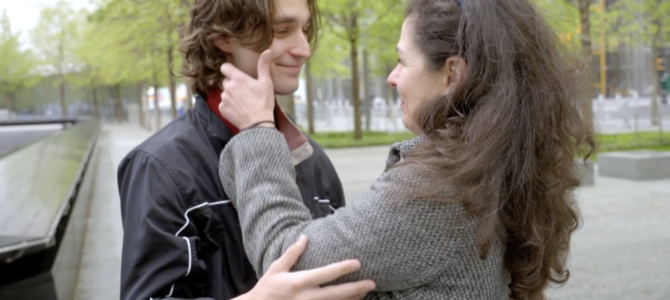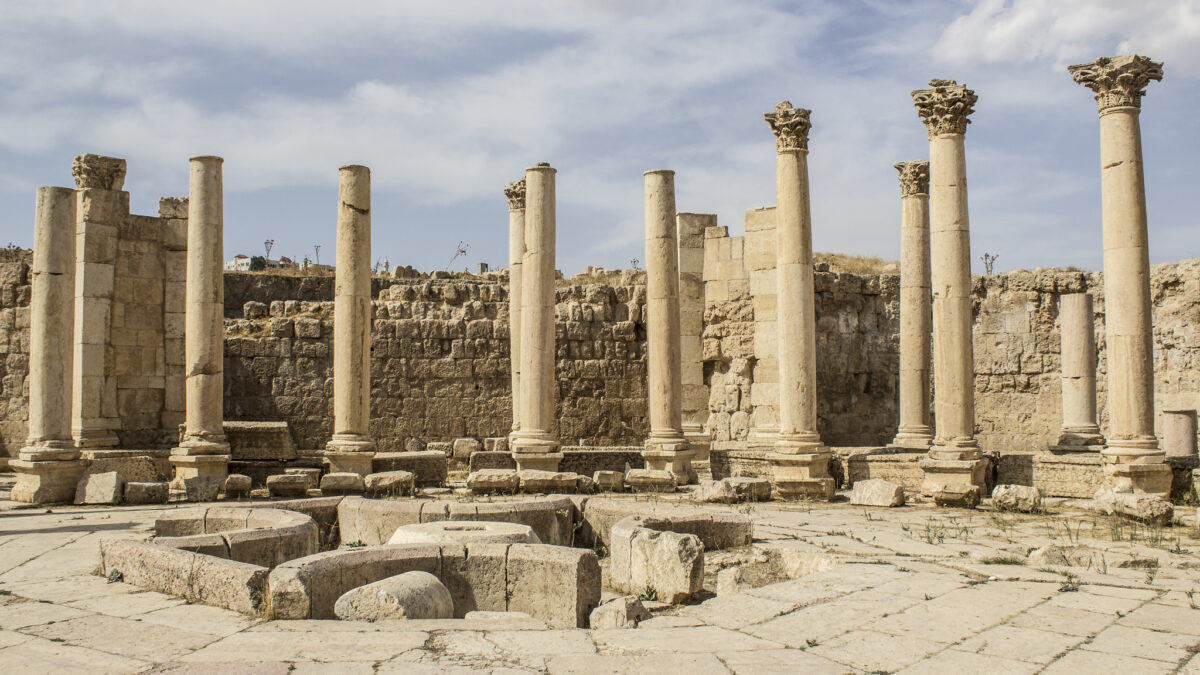
The grainy footage shows a little girl balancing precariously against a floral print couch. She is struggling to get her right foot into her father’s left boot, a scene that delights every father until the day he is running late to work and can’t find his shoes.
The toddler need not worry about a scolding. Megan Fehling was born on October 18, 2001 — the day Green Berets deployed to Afghanistan to avenge the death of her father five weeks earlier.
“My father was a firefighter, but I never met him,” she explains with an abashed giggle to a virtual guitar teacher.
“Generation 9/11,” which airs on PBS tonight at 7:30 p.m. Eastern, is ostensibly about the children of the 105 pregnant women widowed in the Twin Towers and Pentagon attacks. The filmmakers vetted the victims before arriving at seven “people from all sorts of diverse backgrounds” to “unveil the hidden cost of tragedy.”
The viewer meets the children of firefighters and special forces soldiers, investment bankers and union wallpaper hangers. Some spent every day of their lives in harm’s way; others entered Ground Zero for the first and last time of their lives.
The heartbreak of those born fatherless should make “Generation 9/11” the most compelling documentary to emerge in the 20 years since the attacks. PBS somehow manages to strip away any enduring quality from its profiles. The resulting film is not a meditation on grief or growing up without a father or raising children alone. It is a documentary about current events as seen through the eyes 0f precocious children on all sides of the political spectrum.
Nearly everything that distinguishes these teenagers from their peers is erased, ignored, glossed over. We do not see how their upbringing is affected by the death of their fathers or the subsequent actions of their mothers.
Their older siblings are almost entirely silent, younger step-siblings absent. There are no friends, few third-party observers beyond the widows who accompany them on screen and chime in from time to time. The filmmakers are satisfied to treat each child performer as an atomized individual, born of tragedy, yes, but somehow not touched by it or any other human in their lives beyond mother.
The “hidden costs of tragedy” mentioned in the PBS release seem to refer to contemporary events, rather than those that changed their lives. The teens spend more time talking about fake news and school shootings, COVID-19, and racism than they do about dad. Fathers are the cost of admission, props who are shuffled off stage so we can hear undergraduates wax undergraduate about the vapid postures they learned on the internet or the entry-level college course paid for by the scholarship funds that popped up in the wake of the September 11 attacks.
Please do not mistake the above paragraph for criticism of the fatherless children; it is an indictment of lazy filmmaking. A documentary is only as good as an interviewer’s questions.
PBS seems more interested in using the significance of its subjects’ identities than it is about their lives. One gets the sense that the majority of interactions went something along the lines of, “as a child of 9/11, how did you feel about [matter of supreme importance to PBS filmmaker]?”
“I didn’t really care, to be honest. That’s going to sound bad, but I was seven, so give me leeway. I don’t like politics,” Ronald, a black teen whose soldier father died at the Pentagon, says of Barack Obama’s election.
Ronald, like most of the film’s subjects, is introduced without a surname — perhaps the only thing he ever received from his father. He is dismissive of 9/11’s impact on his life. It is “hard to make a relationship with nothing … It’s all on YouTube: I don’t need to know anymore,” he says.
The standout high school athlete will admit there were “one or two times that I wished he was there” to witness his father’s exploits. What stood out about those instances remains a mystery. Ronald says his mom “did a great job” and we are off to the 2016 election and more world-historic events.
Claudia talks to her father, who died hanging up wallpaper in some financial firm, every day. She pauses beneath the framed photographs that decorate her family’s Florida home to pray and meditate. What is it in grief that produces a Claudia or a Ronald? The filmmakers do not seem to care.
The most in-depth backstory we get from a subject is that of Luke Taylor. His Delta Force father died at the Pentagon. His cancer-ridden mother died two years later. Luke grew up in Colorado with his paternal uncle and aunt. He is now an Army ROTC candidate at Texas Christian University. He credits his Army intel uncle as much as his special ops father for inspiring his decision to “do my part.”
“I have the opportunity … to fight the same war that started because my dad died,” Luke says.
The documentary will debut the same day American forces withdraw from Afghanistan after 20 years. Five days earlier, terrorists detonated a suicide bomb outside of the Kabul Airport. Killed in the blast was 20-year-old Marine Lance Corporal Rylee McCollum.
His widow is due to give birth in September.









